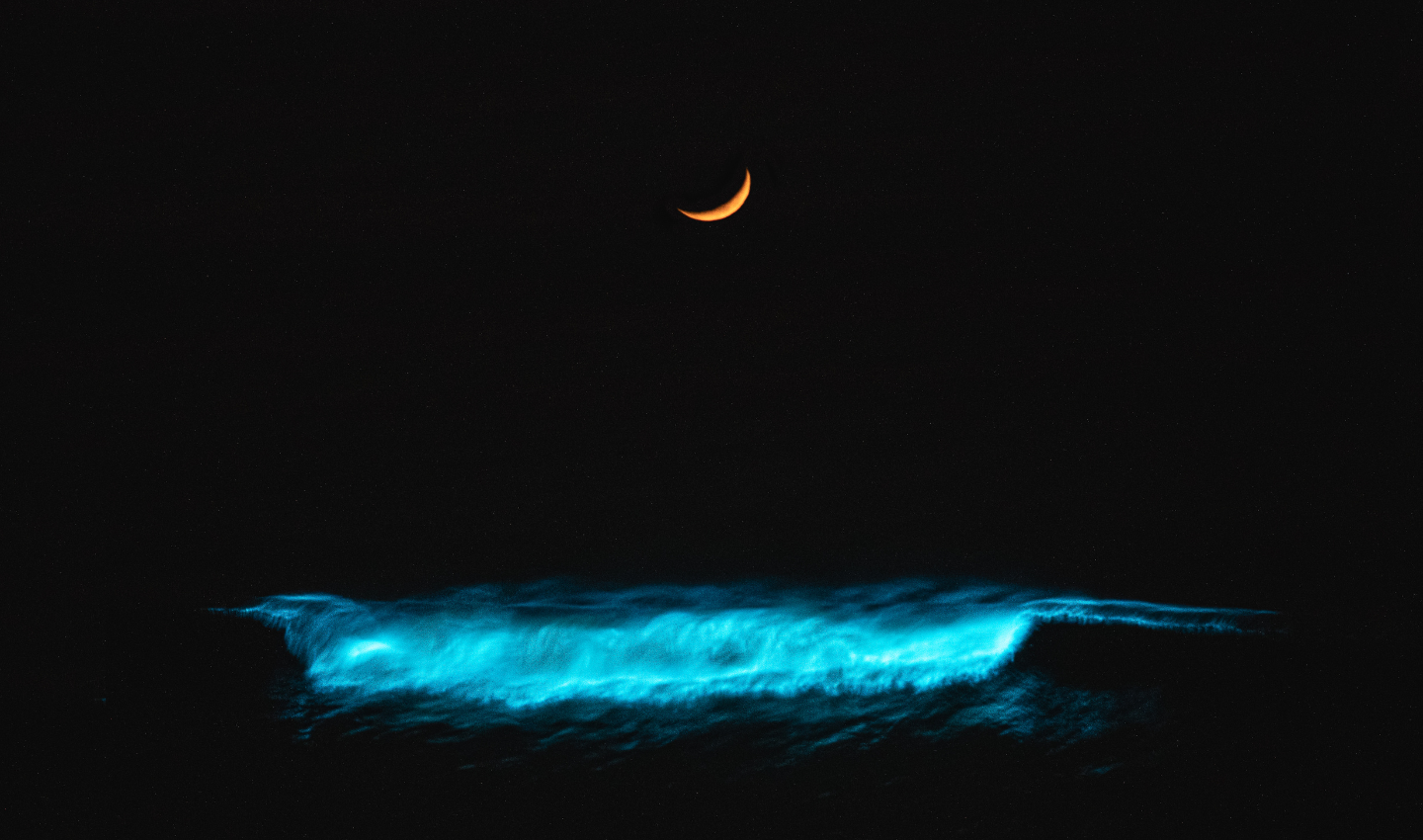- Science: Explained
Why there’s no health without the Ocean.

Our health depends on the Ocean.
This statement is true, of course, but it’s very easy to become desensitised to this idea when it all seems so abstract.
In this modern world, it’s easy to overlook the fundamental basis of our survival that we often take for granted.
It can be hard to directly link our everyday lives and habits to the Ocean, especially for those of us who don’t live anywhere near the coast, and don’t interact with the sea on a regular basis.
This can leave many of us feeling disconnected and disengaged from Ocean action.

But let’s dive deeper into this statement to find out what a healthy Ocean really means to us (humanity), and why we should must care.
A healthy Ocean is key to our survival.
In fact, the Ocean provides all the fundamental resources that we need to survive:
1. Air: The oxygen in every second breath we take comes from the Ocean.
It’s also believed that tiny, single-celled algae called Cyanobacteria provided the atmospheric conditions suitable for our very existence around 2.4 billion years ago. (That’s referred to as the Great Oxidation Event.)
2. Water: All water on the planet is connected by a system known as the hydrological cycle.
Water evaporates from the Ocean’s surface to form clouds, which provide us with the fresh water that we use to drink, shower, and cook with.
It’s all connected via rivers, streams, and groundwater tables.
Even the water that makes up 60% of your own body was part of the Ocean at some point.

3. Food: Seafood provides a primary source of protein for over 3.3 billion people.
That’s over 40% of the global population (8.1 billion in 2023). The Ocean also drives the rain systems and climate patterns which help our crops to grow.
So even if you don’t eat fish, the Ocean still indirectly provides the food that you eat.
4. Shelter: The Ocean has been present during every element of our evolutionary history as human beings and continues to shape the way our society functions.
River basins, where land meets the sea, represent the earliest relationship between human society and nature. These areas of fertile plain fields, rich soil and abundant water resources allowed for the very first human civilisations to thrive.
Over time, the development of ports also provided a gateway of connectivity and transportation between societies.
This relationship continues today.
As of 2020, almost 1 billion people live within 10km of the coastline, and more than one third of the world’s population (2.75 billion people) live within 100km from the coast.
What’s more, over 3 billion people depend on the Ocean as a primary source of income, the majority of these from Ocean-based industries such as fisheries and tourism in developing countries.

Healthy people need a healthy Ocean.
The Ocean contains a vast biodiversity of life, with over 250,000 known species and many more (at least two thirds) yet to be discovered.
Each life form has a unique method of adaptation against disease and pathogens. We’re constantly learning from this strange and alien world to apply these mechanisms to our own needs.
We depend on this marine biodiversity to develop modern medicines. In fact, between 1981-2008, around 64% of all drugs used to fight infection, and 63% of anti-cancer drugs were derived from natural sources.
For example, the Horseshoe Crab is commonly referred to as a “living fossil” and has survived almost unchanged for around 200 million years. Its blue blood contains special cells called “granular amoebocytes” which can detect and clot around even the tiniest presence of toxic bacteria.
Humans harness the special property of this blood to test whether the drugs and vaccines that we produce are free from contamination.

A healthy Ocean is our greatest ally against climate change.
A healthy Ocean stabilises our entire planetary system and acts as a buffer against the worsening impacts of climate change.
It regulates global air temperatures by absorbing 26% of total CO2 emissions and storing over 90% of the excess heat from the atmosphere.
But the Ocean is not just a victim of climate change, it’s also a source of solutions.

Coastal “blue carbon” ecosystems, such as mangroves, tidal marshes and seagrass meadows remove and store carbon dioxide from the atmosphere. These ecosystems can lock away carbon in their soils at rates up to an order of magnitude faster than terrestrial forests.
Protecting and restoring these vital coastal ecosystems offers us a chance to ensure a sustainable future for people and planet.
If the Ocean thrives, so do we.
So, next time you’re having a drink of water, catching your breath after exercising, or waiting at the doctor’s surgery for some medicine, take a moment to stop and thank the Ocean for providing the fundamentals to make all this possible.




